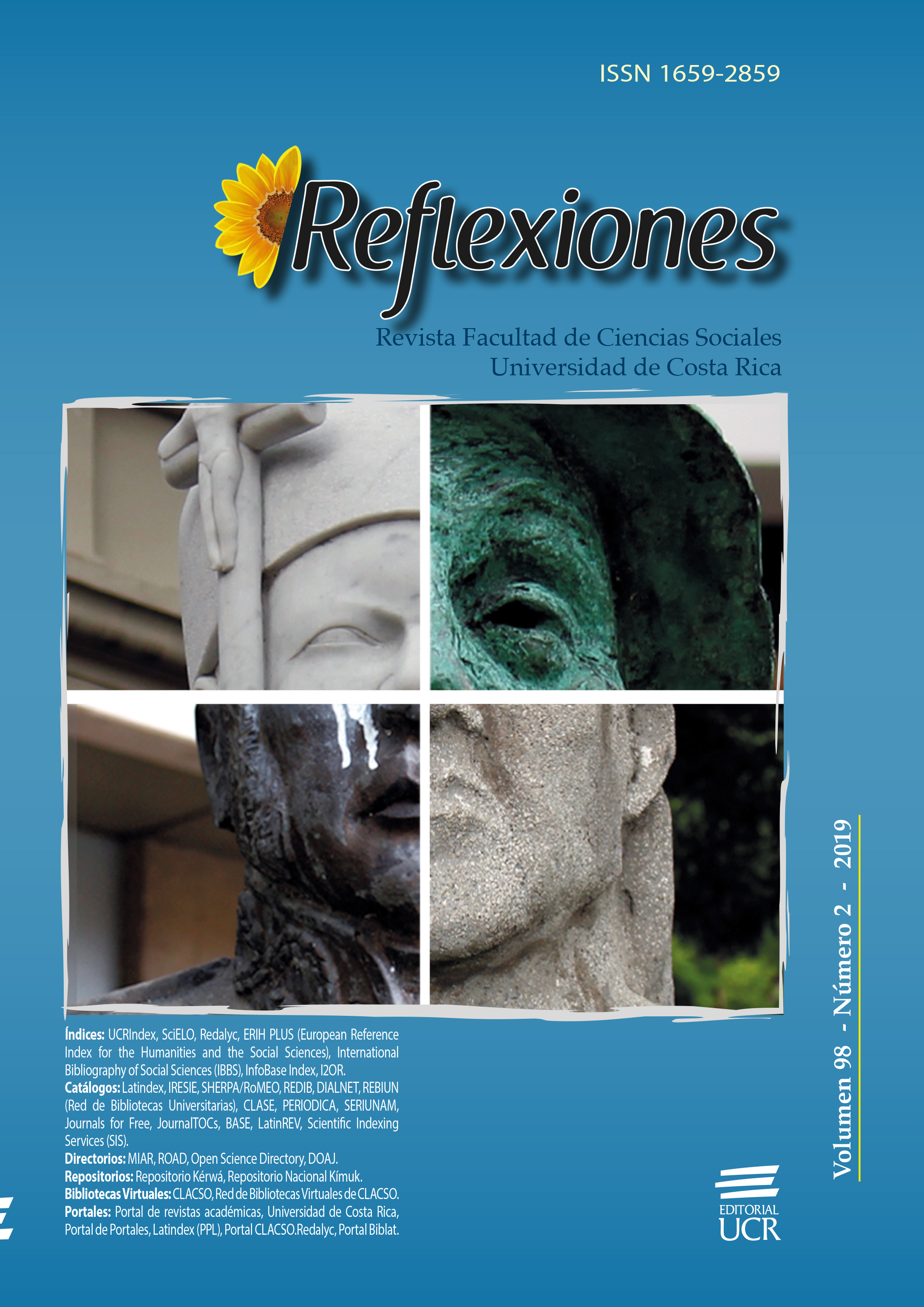Abstract
In Costa Rica the existing knowledge about narcoviolence, the violence related to drug trafficking and local drug-dealing, is sparse and very much fragmented. This article aims to show what is, at a national level, the state of the art on this topic. Unifying the existing knowledge on narcoviolence makes it possible to offer an analysis and synthesis that can be useful to those that, in the public sector and in civil society, want to understand what the main characteristics of this phenomenon are to then implement new solutions. In particular, we explain the country’s understanding of organized crime, what we know about the impact that international drug trafficking has on the national context, how the local drug-dealing groups are organized in urban-marginalized communities, and what the social causes of this problem are. Secondly, the existing gaps in the literature are indicated, demonstrating possible routes for future academic research.


